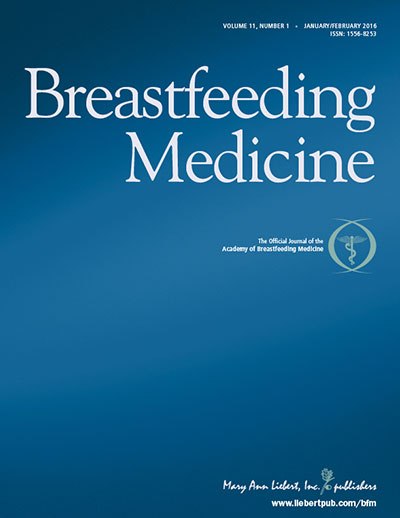July 2006 : Common variants in three genes have been found to predict development of type 2 diabetes, the most common form of the disease, based on a study of more than 7,000 Swedes followed for an average of 22 years, according to a report presented at the American Diabetes Association's 66th Annual Scientific Sessions.
�Each of these genes are independent predictors of diabetes, which means that each acts via a different mechanism to increase risk of the disease, and that those who have two or more of the genes have added risk,� explained Valeriya Lyssenko, MD, PhD, a fellow in diabetes and endocrinology at Lund University, Malm�, Sweden, in a recent interview. Dr. Lyssenko is the lead author of the study.
Some 20.8 million adults and children in the United States have diabetes, a group of serious diseases characterized by high blood glucose levels that result from defects in the body's ability to produce and/or use insulin. Diabetes can lead to severely debilitating or fatal complications, such as heart disease, stroke, blindness, kidney disease, and amputations. It is the fifth leading cause of death by disease in the U.S.
�Type 2 diabetes is believed to be a disorder in which multiple genetic variants interact with environmental factors to unmask the disease,� she explained. �Common variants in a number of genes have been associated with the disease in cross-sectional studies, and we have now documented three.�
The question of whether genetic variant information could be used to identify individuals at risk of developing future diabetes has been explored in research before, but because of limitations in the size and duration of the studies, relatively few individuals developed diabetes during the short follow-up periods.
Continue Reading Below ↓↓↓
In contrast, the Malm� Preventive Project offered sufficient power to test the hypothesis because 33,346 individuals have been followed for a median of 22 years.
The Malm� Preventive Project was originally launched by the Department of Preventive Medicine of Malm�, a city in southern Sweden, as a large-scale, long-term, randomized controlled trial with the aim of reducing morbidity and mortality related to cardiovascular diseases, alcohol-related illnesses, and breast cancer. Starting in the mid 1970s, individuals aged 32 to 51were recruited and screened for hypertension, hyperlipidemia, type 2 diabetes and alcohol abuse. Intervention programs, including lifestyle modifications, follow-up visits with physicians and nurses, and drug therapy, were offered to about 25 percent of study subjects.
Further, a subset of 222 men with early type 2 diabetes or impaired glucose tolerance were enrolled in a six-year study to help prevent or reverse diabetes with diet and exercise and, as reported in 1991, was one the first studies to report success in prevention with this approach.
Although the Malm� Preventive Project did not reduce total mortality in the intervention group as a whole, the participants have continued to be followed. At their latest follow-up visit, 7,000 were randomly selected to participate in this genetic study.
For this genetic study, the researchers tested the ability of common variants in nine genes to predict overt type 2 diabetes in a subset of 7,061 individuals (4,392 men and 2,669 women) with DNA, follow-up medical history, and laboratory data available to date. When these individuals were enrolled more than 22 years ago, their average age was 46 �6 years, BMI was 24 �3 kg (i.e. they were not overweight), and only 24.5% had impaired fasting glucose or impaired glucose tolerance (both measures of glucose are above normal but not yet high enough to be diagnostic of diabetes). At the time of the follow-up examination, 1,422 (20.1%) individuals in the group had developed type 2 diabetes. By looking at what genes were more common in those who developed diabetes � as opposed to those who did not � the scientists were able to define those genes that predict the disease. Genes Identified and Follow-Up Research Planned
The scientists identified the following genes that increased the risk of future type 2: the T-alleles of both TCF7L2 rs12255372 (odds ratio 1.40) and rs7903146 (odds ratio 1.52) � that is, two different polymorphisms (DNA sequence variations) on the same gene; KCNJ11 K-allele (odds ratio 1.23) and PPARG PP-genotype (odds ratio 1.20).
�While theoretically someone could now be tested to find out whether they have these risk-producing genes, that won�t tell you for sure whether you will get diabetes because there are other genes that have yet to be identified � and genes must interact with environmental factors in order for the predisposition to be triggered and the disease to unfold,� said Dr. Lyssenko.
So how will this news be used? It�s a first step toward more research.
�We need to identify what other genes are involved, which is underway in a genome scan that Lund University is conducting in collaboration with other institutions,� she explained.
After further population-based studies to validate the findings, a screening test could then be developed to test a person to see if he/she is at significant risk for diabetes. If a person is at increased risk, aggressive intervention could be undertaken to help that person maintain an ideal weight, participate in regular physical activity and adhere to a healthy meal plan � a lifestyle that has been shown to reduce the risk of developing diabetes by 58% in those at high risk for the disease as demonstrated by the Diabetes Prevention Program.
Continue Reading Below ↓↓↓
Type 2 diabetes involves insulin resistance � the body�s inability to properly use its own insulin. It usually occurs in those who are over 45 and overweight, but it has increasingly been seen in obese children and teens in recent years. The American Diabetes Association is the nation's leading voluntary health organization supporting diabetes research, information and advocacy. Founded in 1940, the Association has offices in every region of the country, providing services to hundreds of communities. For more information, please call the American Diabetes Association at 1-800-DIABETES (1-800-342-2383) or visit www.diabetes.org. Information from both these sources is available in English and Spanish.
Source: American Diabetes Association











